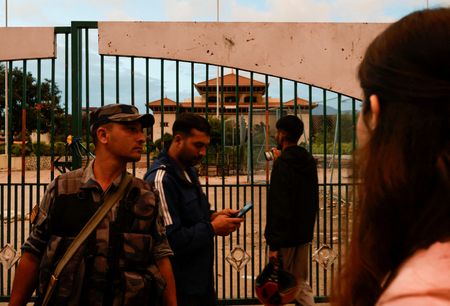DHAKA (Reuters) -Rising temperatures are taking a mounting toll on Bangladesh, with heat-related illnesses and productivity losses costing the economy up to $1.78 billion – about 0.4% of GDP – in 2024, according to a World Bank report released Tuesday.
The study shows that since 1980, the South Asian country’s maximum temperature has climbed by 1.1 degrees Celsius while the “feels like” temperature has spiked by 4.5 C.
The rising heat has fueled a surge in diarrhea, respiratory problems, fatigue, and mental health issues such as depression and anxiety. Women and older people are especially at risk.
Bangladesh’s capital Dhaka has emerged as one of the world’s most heat-stressed cities, with its heat index rising 65% faster than the national average. In 2024 alone, heat-related physical and mental health conditions wiped out 25 million workdays in the country, according to the report.
“Extreme heat is not just a seasonal inconvenience. Its impact is far reaching. As we see in Bangladesh that the rising temperature is affecting our health and productivity, and the country’s prosperity,” said Jean Pesme, World Bank Division Director for Bangladesh and Bhutan.
“By building on its experience in climate adaptation and taking a coordinated approach across sectors, Bangladesh can address the heatwave impacts and maintain sustainable growth. The good news is that it can be done, as seen in countries like Singapore and others.”
The report urges urgent action to strengthen health systems, expand urban green spaces, and improve data collection. It calls for international financing to help Bangladesh adapt to escalating climate risks.
(Reporting by Ruma PaulEditing by Ros Russell)









